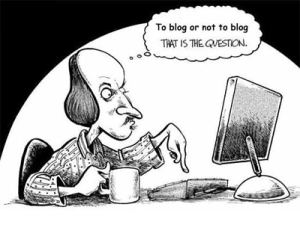Don’t Make Me Laugh (v 2.0)
Well, actually do. Just make sure you’re saying something meaningful while you do it.
The role of humour in poetry is perhaps not widely contested, but I’m beginning to get the feeling it should be. The election of Geoffrey Hill as Oxford Professor of Poetry throws into relief how serious a concern poetry has become. Hill’s ethos seems to be to preserve the grave sanctity of poetry in the face of a world that doesn’t quite know where to place it. I personally am not sure that’s the way forward. While I admire Hill as a poet and academic (and hope he lasts his term a bit better than the last Prof. of Poetry!), I think he maybe needs to loosen up a bit.
 While I weep for a world in which Pam Ayres’s comic silliness outsells ‘real’ poetry, I think there’s a very important place for humour in modern poetry. Admittedly, the lyrical forms of Don Paterson and Seamus Heaney may not lend themselves to comedy (god forbid they descend into limerick), but humour can be one of the most effective vehicles for conveying the sense of a poem. Nothing will drive the meaning straight to my heart like a poem that makes me chuckle to myself. The smile is the window the soul, it seems. Once I’ve laughed, I’m open to whatever else the poet has to say, and the beauty and impact of their images and sounds will sink in a lot more easily.
While I weep for a world in which Pam Ayres’s comic silliness outsells ‘real’ poetry, I think there’s a very important place for humour in modern poetry. Admittedly, the lyrical forms of Don Paterson and Seamus Heaney may not lend themselves to comedy (god forbid they descend into limerick), but humour can be one of the most effective vehicles for conveying the sense of a poem. Nothing will drive the meaning straight to my heart like a poem that makes me chuckle to myself. The smile is the window the soul, it seems. Once I’ve laughed, I’m open to whatever else the poet has to say, and the beauty and impact of their images and sounds will sink in a lot more easily.
I’m not saying that humour is the be-all and end-all of poetic expression, but I feel like it’s too often looked down upon by serious poets and critics. Comedy is, in this case, the means rather than the end. Reading anthologies of ‘new’ poetry such as Identity Parade and Voice Recognition has exposed me to a contemporary poetry in which individualism is prized above all else (a welcome relief when my other reading has been Nineteen Eighty-Four). With the rise of the ‘pluralist now’ has come the revival of humour: being funny enables the 21st-century poet to announce themselves in an exciting and singular way that, if nothing else, makes the reader sit up and pay attention. Poets like Julia Bird and Heather Phillipson are exemplary of this, but it was the American surrealist James Tate who first alerted me to the value of laughter when reading poetry. In the following poem, Tate uses humour to establish a surprisingly engaging persona; a Finnish-American student in Cambridge, Massachusetts. The frank, self-deprecating and hilarious voice in which Tate speaks is wonderful because it disarms the reader, cracks the grimacing visage of the ‘serious poetry’ enthusiast and builds an unspoken rapport between narrator and reader. Have a look:
I Am a Finn
I am standing in the post office, aboutto mail a package back to Minnesota, to my family.I am a Finn. My name is Kasteheimi (Dewdrop).
Mikael Agricola (1510-1557) created the Finnish language.He knew Luther and translated the New Testament.When I stop by the Classé Café for a cheeseburger
no one suspects that I am a Finn.I gaze at the dimestore reproductions of Lautrecon the greasy walls, at the punk lovers afraid
to show their quivery emotions, securein the knowledge that my grandparents really didemigrate from Finland in 1910 – why
is everybody leaving Finland, hundreds ofthousands to Michigan and Minnesota, and now Australia?Eighty-six percent of Finnish men have blue
or grey eyes. Today is Charlie Chaplin’sone hundredth birthday, though he is notFinnish or alive: ‘Thy blossom, in the bud
laid low.’ The commonest fur-bearing animalsare the red squirrel, musk-rat, pine-martenand fox. There are about 35,000 elk.
But I should be studying for my exam.I wonder if Dean will celebrate with me tonight,assuming I pass. Finnish literature
really came alive in the 1860s.Here, in Cambridge, Massachusetts,no one cares that I am a Finn.
They’ve never even heard of Frans Eemil Sillanpää,winner of the 1939 Nobel Prize in Literature.As a Finn, this infuriates me.